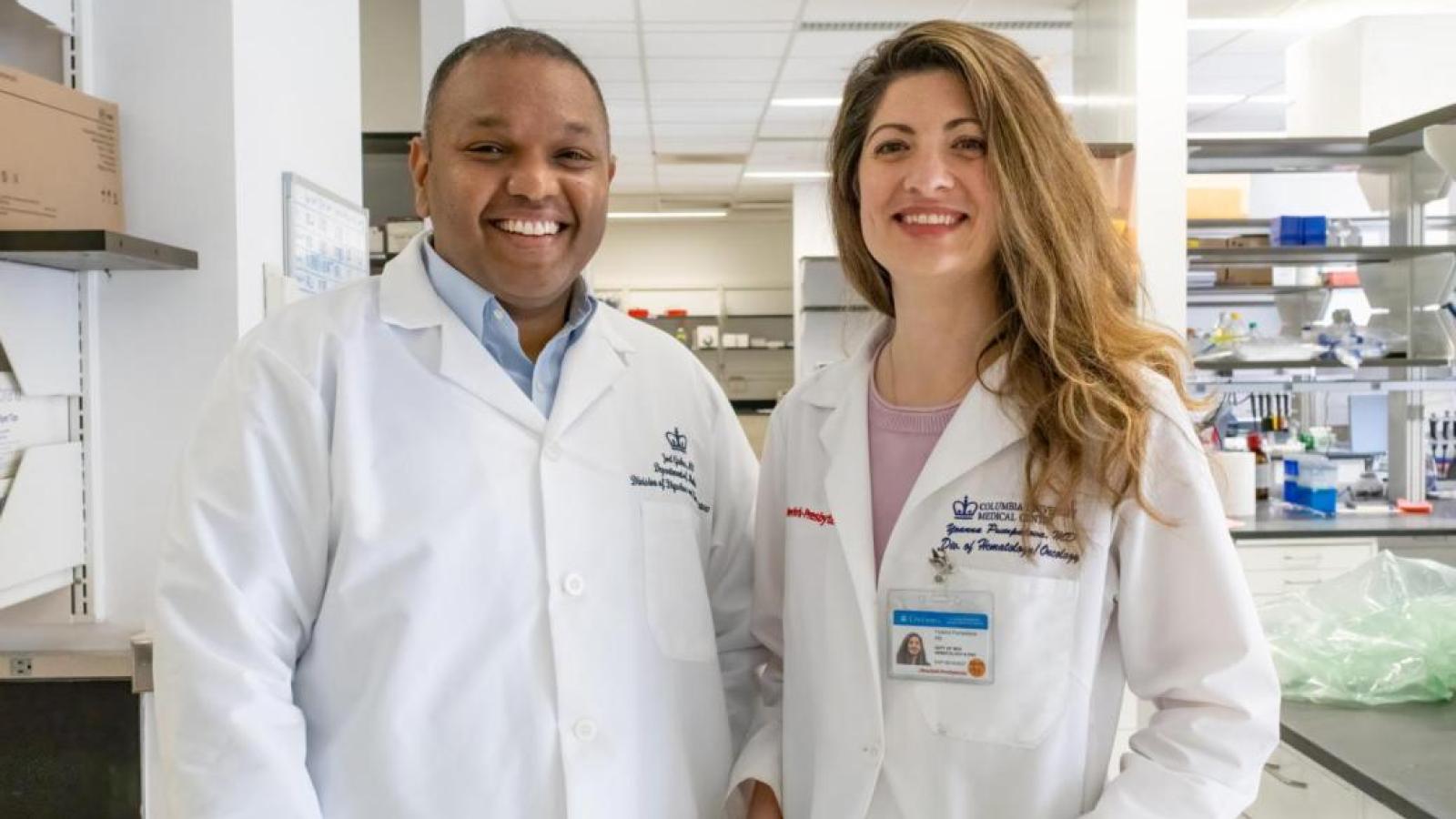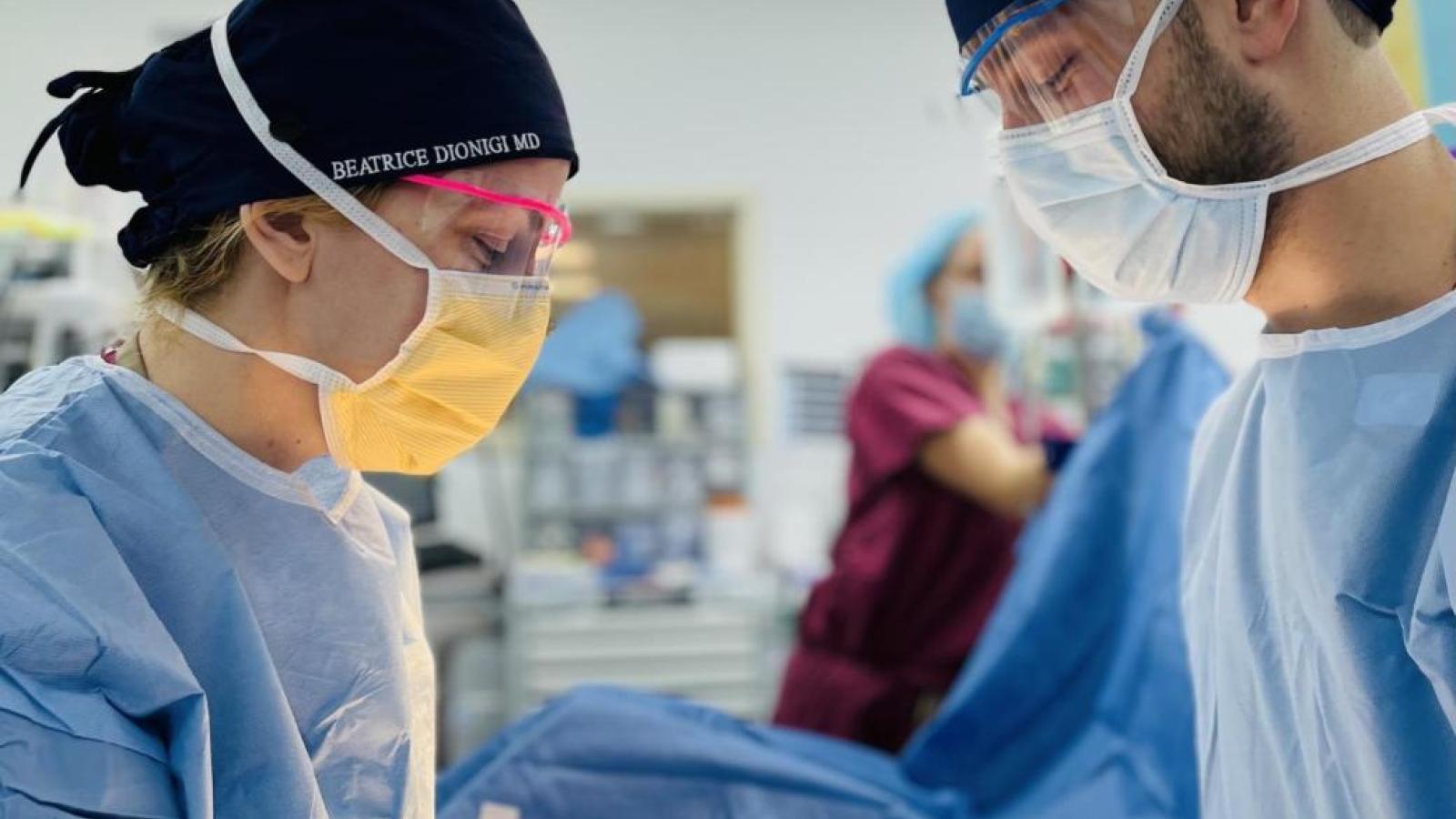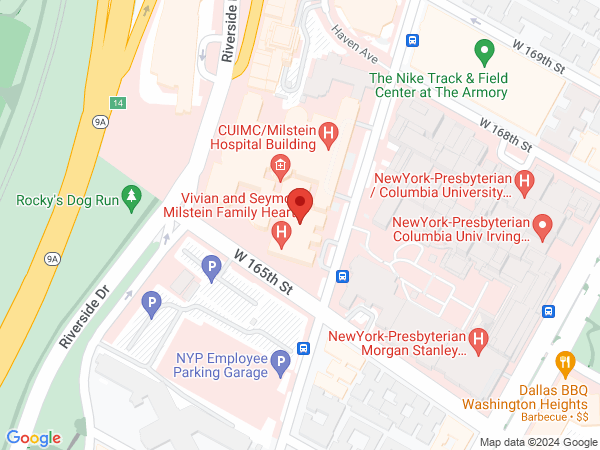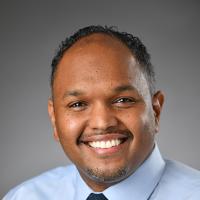Early Onset Colorectal Cancer Program
The Early Onset Colorectal Cancer Program at the Herbert Irving Comprehensive Cancer Center is one of the first of its kind dedicated to young people who have been diagnosed with colorectal cancer. Our team provides the full range of services specialized for early or young onset colorectal cancer patients, including the most advanced surgical and endoscopy techniques, cutting edge clinical trials, and comprehensive support services including fertility preservation and psychology services. Our researchers are also conducting studies to understand the underlying cause of colorectal cancer in those under age 50, and to find new ways to combat it.
The Columbia Difference
What is early onset colorectal cancer?
What is the latest research in early onset colorectal cancer?
The Columbia Difference
Being diagnosed with colorectal cancer can be difficult no matter your age, and it can also feel particularly overwhelming if you are a younger patient. At Columbia, you will have a team of experts in early onset colorectal cancer from surgery, medical oncology, gastroenterology and more.
Our multidisciplinary approach is unique and offers patients cutting-edge oncological care using the most advanced surgical approaches to date, like robotics, single port laparoscopic and transanal techniques.
We offer services tailored to your specific needs as a young patient, including genetic counselling, fertility preservation, specialized psychosocial and nutrition support, and multidisciplinary distinctive collaborations with colleagues from gastroenterology, urology, gynecology and more.
See all your doctors, all in one place
Columbia brings your entire care team of doctors together to deliver a treatment plan personalized to each patient through our co-located clinic at on the 8th floor of CUIMC/Herbert Irving Pavilion. The clinic, where you can receive same-day treatment from all your doctors, is open every week on Monday.
What is the Latest Research in Early Onset Colorectal Cancer?
Drs. Joel Gabre, Beatrice Dionigi and Yoanna Pumpalova are working to find out just what is causing the increase in colorectal cancer in people under 50. In the lab they are looking beyond the cancer cells themselves and into the tissue around the tumor to try to find any clues as to why the disease is skewing younger. They are also looking at patients’ immune cells and growing organoids, complex 3D cell cultures that can mimic a tumor in the colon.
Patient Stories: Early Onset Colorecal Cancer
Resilience and Determination: How a Young Dancer Beat Colon Cancer
At 31, Rachel Secrest was shocked to learn she had colorectal cancer. But thanks to the care of Beatrice Dionigi, MD, the dancer is cancer-free and can return to the stage.
Contact
Our Team
Beatrice Dionigi, MD, FACS, FASCRS
- Co-Director
Dr. Dionigi is a double board-certified colon and rectal surgeon with a specific interest and expertise in colon and rectal cancer, polyposis syndromes, re-operative colorectal surgery as well as robotic and minimally invasive procedures. She founded and collaborates closely with Drs. Pumpalova and Gabre as a co-director of the Early Onset Colorectal Cancer Program with the goal of finding the reasons behind why young patients suffer from colon or rectal cancer when not related to known genetic syndromes.

Joel T. Gabre, MD
- Co-Director
Dr. Gabre is a gastroenterologist and cancer genetics specialist who sees patients with known or suspected hereditary gastrointestinal cancer syndromes. He runs a translational research lab focused on gastrointestinal cancers with a particular interest in tumor modeling using novel 3D culture systems. He collaborates closely with Drs. Pumpalova and Dionigi as a co-director of the Early Onset Colorectal Cancer Program with the goal of bringing research insights from the lab into the clinic.

Yoanna S Pumpalova, MD
- Co-Director
Dr. Pumpalova specializes in the treatment of gastrointestinal malignancies, with a focus on colorectal and anal cancers. She collaborates with Drs. Gabre and Dionigi on translational research to understand how early onset colorectal cancer differs from average onset colorectal cancer, with the goal of uncovering novel ways to treat all patients with colorectal cancer.
Drs. Pumpalova, Dionigi and Gabre co-direct the Early Onset Colorectal Cancer Clinic, where they see patients together in a multidisciplinary medical/surgical clinic, providing them with seamless, integrated and coordinated cancer care. Dr Pumpalova also leads the colorectal clinical trials portfolio, bringing cutting-edge colorectal cancer therapies to Columbia's patients.

Early Onset Colorectal Cancer Post-Doctoral Research Fellows
David Cohen, MD
Dr. David Cohen is a General Surgery Resident at New York Presbyterian-Columbia University. His research is focused on investigating differences in the immune microenvironments of early and late-onset colorectal cancer. After his training, he plans to pursue fellowship training in Colon and Rectal Surgery.

Casidhe-Nicole Bethancourt, MD
Casidhe-Nicole Bethancourt, MD was born and raised in New York City. She attended Dartmouth College for her undergraduate degree and the Vagelos College of Physicians and Surgeons for her medical degree. Her research focus is on exploring the exposome and its interaction on the gut microbiome in patients with early onset colorectal cancer.

Early Onset Post-Doctoral Research Fellowship
The Columbia Early Onset Post-Doctoral Research Fellowship is an innovative translational research fellowship that allows clinician-scientist trainees (residents and fellows) to conduct lab based research on projects related to early onset colorectal cancer.
- Trainees are expected to spend at least 80% of their time dedicated to research for a period of at least 2 years. The goal of this program is to expand the pipeline of future investigators studying early onset colorectal cancer.
- If interested, please send CV to jg4262@cumc.columbia.edu. Applicants are reviewed on rolling basis.








